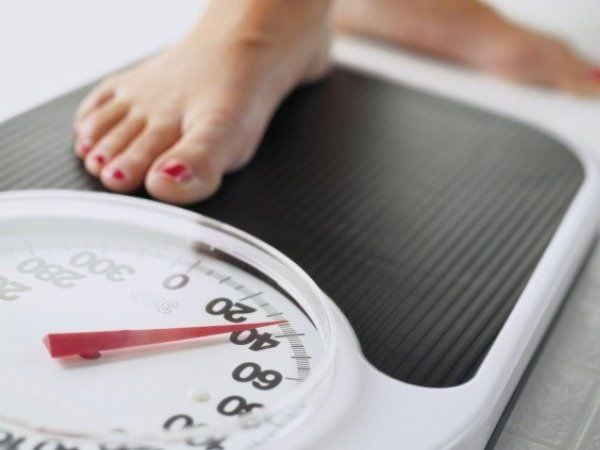Weight gain before your period is something many women experience, and it can feel frustrating when the scale goes up even though nothing in your routine has changed. You might notice bloating, a heavier feeling in your body, or clothes fitting a little tighter during those days. The important thing to know is that this is a very normal part of the menstrual cycle.
This temporary weight gain often comes down to normal hormonal changes, water retention, and even shifts in appetite. It’s a natural part of the menstrual cycle, and once your period starts, the extra weight often fades away on its own.
In this blog, we’ll look at why weight gain before your period is normal and how to manage it.
Understanding Premenstrual Weight Gain

If you’ve ever felt like your jeans suddenly got tighter right before your period, you’re not alone. Many women notice a small increase on the scale in the days leading up to their cycle. This is often referred to as premenstrual weight gain, and it’s actually very common.
Recommended: Best Pineapple Detox Drink for Weight Loss
The main reason it happens is because of hormonal changes during the menstrual cycle. As estrogen and progesterone levels shift, the body tends to hold onto more water and salt. That’s why bloating, puffiness, and a slight rise in weight can show up. On average, women may notice anywhere from 1 to 5 pounds of temporary weight gain during this time.
The good news is that this type of weight gain usually isn’t fat. It’s mostly extra fluid, and once your period begins, your body naturally lets go of it. Within a few days, most of that added weight disappears.
Is Pre-Period Menstrual Weight Gain Normal?
Yes, gaining a little weight before your period is completely normal. Many women notice their clothes feel snug or the scale goes up by a few pounds in the days leading to their cycle. This is mostly linked to hormonal changes that make the body hold onto extra water and salt. Along with that, bloating and changes in digestion can also add to the feeling of being heavier than usual.
Recommended: Best Time to Drink Kefir for Weight Loss
The important thing to remember is that this weight gain is temporary. It usually ranges between one to five pounds and starts to drop off once your period begins. Since it’s mostly water weight and not fat, it isn’t something to worry about. Your body is simply responding to its natural cycle, and everything balances back out after a few days.
How Long Does PMS Weight Gain Last?
PMS weight gain usually shows up in the luteal phase of the menstrual cycle, which is the week or so before your period begins. During this time, the rise and fall of hormones like estrogen and progesterone cause your body to hold onto extra water and salt. This is why you may feel bloated, puffy, or notice the number on the scale climbing even if your eating habits haven’t changed much. For most women, this weight gain starts gradually and becomes more noticeable in the few days right before menstruation.

The encouraging part is that this type of weight gain doesn’t stick around. Once your period begins, hormone levels shift again and your body naturally starts to release the extra fluid. Most of the bloating and water weight disappears within the first three to four days of menstruation. By the end of your cycle’s first week, your body usually feels back to its normal rhythm. This cycle of temporary weight fluctuation is a very common part of PMS and is rarely something to worry about.
Recommended: Can Pelvic Floor Dysfunction Cause Weight Gain?
Tips to Manage Pre-Period Weight Gain
Dealing with weight gain before your period can feel frustrating, but the good news is there are simple ways to ease the bloating and discomfort. The goal isn’t to completely stop it since it’s part of your body’s natural cycle, but to make the symptoms lighter and more manageable. Small changes in lifestyle and daily habits can go a long way.
Here are a few helpful tips you can try
- Stay hydrated by drinking plenty of water throughout the day
- Cut back on salty snacks and processed foods to avoid excess water retention
- Move your body with light exercises like walking, yoga, or stretching to improve circulation
- Eat balanced meals filled with fruits, vegetables, lean proteins, and whole grains to keep cravings in check
- Limit caffeine and alcohol since they can dehydrate you and worsen bloating
- Get enough sleep so your body can regulate hormones and keep cravings under control
- Add potassium-rich foods such as bananas, spinach, and sweet potatoes to naturally fight bloating
- Try smaller, more frequent meals instead of heavy portions to make digestion easier
- Practice relaxation techniques like meditation or deep breathing to keep stress levels down, since stress can make PMS symptoms worse
When to Be Concerned

For most women, a little weight gain before their period is nothing to worry about. It usually comes and goes within a few days and is tied to natural hormonal changes. But sometimes, weight gain or bloating can signal something more than just PMS. If you notice your symptoms are unusually intense, last much longer than your period, or start interfering with your daily life, it may be time to take a closer look.
Recommended: Why Cancer Causes Weight Loss And How To Prevent It.
You should also pay attention if your weight gain is sudden, severe, or doesn’t go away after your cycle ends. In some cases, it could be linked to conditions like thyroid issues, polycystic ovary syndrome (PCOS), or other hormonal imbalances. If the swelling is painful, your cycle feels irregular, or you are simply worried about the changes you see, it’s always a good idea to check in with a doctor. A healthcare provider can help rule out underlying concerns and give you guidance tailored to your body.
Conclusion
Weight gain before your period is a normal and temporary part of the menstrual cycle. It usually comes from hormonal changes that make the body hold onto extra water, salt, and sometimes food cravings. While it can feel uncomfortable, it is rarely a sign of something serious and often goes away a few days after your period begins.
The key is to remember that your body is simply responding to natural shifts each month. By making small lifestyle adjustments like staying hydrated, eating balanced meals, and managing stress, you can ease the discomfort. And if your symptoms ever feel extreme or don’t go away, reaching out to a healthcare professional can give you peace of mind.
